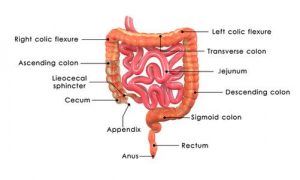 The lowly and much-derided appendix has long been thought to be a vestigial organ, something evolution has been trying to get rid of but so far hasn’t succeeded. However new research suggests it may serve a valuable function.
The lowly and much-derided appendix has long been thought to be a vestigial organ, something evolution has been trying to get rid of but so far hasn’t succeeded. However new research suggests it may serve a valuable function.
The appendix is a little pouch attached to the bottom right of the large intestine. If it becomes inflamed it can be extremely painful, and if it bursts, life-threatening. The typical response to inflammation is to surgically remove it. But that may not be how we deal with it in the future.
What Does Your Appendix Do?
Researchers at Duke University Medical Center in Durham, North Carolina published findings in 2007 that suggest the appendix carries out a surprising and important function. It acts as a storage locker for beneficial gut bacteria. Should an illness or antibiotic use destroy the flora living in the gastro-intestinal tract, the bacteria stored in the appendix can emerge once the illness has passed, and repopulate the gut tract.
Duke University’s researchers showed that this lowly organ has evolved more than once in various species. It evolved in marsupials, and in rodents and other small mammals. And of course in primates, including humans. The implication is clear: this organ has a purpose, otherwise evolution wouldn’t keep replicating it. In fact in various forms the it appears to have been around for almost 100 million years, not what you would expect in a vestigial organ.
A 2011 study by researchers at Winthrop-University Hospital in New York appears to confirm Duke University’s findings. Researchers studied 254 patients infected with Clostridium difficile, or C. difficile. C. difficile can take over the gut after antibiotics have destroyed the beneficial bacteria. They found that in younger patients, about ten percent whose appendixes were intact suffered from C difficile while almost 50 percent of those who had received appendectomies suffered from it.
This isn’t conclusive, of course. But the research hints at a tantalizing link between healthy gut flora and the appendix.
Keeping Your Appendix Healthy
What can you do to maintain a healthy appendix? Plenty. While you cannot guarantee against inflammation, you can steps take to reduce the likelihood of problems. The University of Maryland Medical Center reports that vegetables may reduce the likelihood of appendicitis. Brussels sprouts and other vegetables in the cruciferous family (which includes cauliflower and cabbage) appear most beneficial. Tomatoes may also be a valuable preventative.
Living Without Your Appendix
An appendectomy doesn’t mean you can now expect to have serious issues with your gut bacteria. The procedure has been around for decades. The vast majority of those who have lost their appendix live full, healthy lives. Remember, the appendix appears to act as a storehouse for them in case the beneficial bacteria have been wiped out.
There are other ways to repopulate your intestinal tract, including probiotics. A healthy diet helps maintain your beneficial gut bacteria, and this remains true even when you’ve lost your appendix. While you may be better off with it, you can live without it. If you need additional information, our Hong Kong Gut Health Centre can advise on on probiotic and dietary choices.
You can find out more about maintaining healthy gut bacteria in some of my previous health articles.

